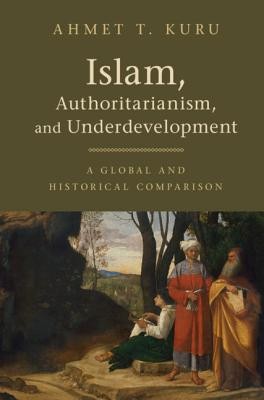
- Išsiųsime per 10–14 d.d.
- Autorius: Ahmet T Kuru
- Leidėjas: Cambridge University Press
- Metai: 2019
- Puslapiai: 336
- ISBN-10: 1108419097
- ISBN-13: 9781108419093
- Formatas: 23.4 x 16 x 2 cm, kieti viršeliai
- Kalba: Anglų
- Extra -15 % nuolaida šiai knygai su kodu: ENG15
Atsiliepimai
Aprašymas
Why do Muslim-majority countries exhibit high levels of authoritarianism and low levels of socio-economic development in comparison to world averages? Ahmet T. Kuru criticizes explanations which point to Islam as the cause of this disparity, because Muslims were philosophically and socio-economically more developed than Western Europeans between the ninth and twelfth centuries. Nor was Western colonialism the cause: Muslims had already suffered political and socio-economic problems when colonization began. Kuru argues that Muslims had influential thinkers and merchants in their early history, when religious orthodoxy and military rule were prevalent in Europe. However, in the eleventh century, an alliance between orthodox Islamic scholars (the ulema) and military states began to emerge. This alliance gradually hindered intellectual and economic creativity by marginalizing intellectual and bourgeois classes in the Muslim world. This important study links its historical explanation to contemporary politics by showing that, to this day, ulema-state alliance still prevents creativity and competition in Muslim countries.EXTRA 15 % nuolaida
Kupono kodas: ENG15
Akcija baigiasi už 4d.13:45:43
Nuolaidos kodas galioja perkant nuo 10 €. Nuolaidos nesumuojamos.

- Autorius: Ahmet T Kuru
- Leidėjas: Cambridge University Press
- Metai: 2019
- Puslapiai: 336
- ISBN-10: 1108419097
- ISBN-13: 9781108419093
- Formatas: 23.4 x 16 x 2 cm, kieti viršeliai
- Kalba: Anglų




Atsiliepimai